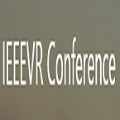As multimedia services such as video streaming, video conferencing, virtual reality (VR), and online gaming continue to expand, ensuring high perceptual visual quality becomes a priority to maintain user satisfaction and competitiveness. However, multimedia content undergoes various distortions during acquisition, compression, transmission, and storage, resulting in the degradation of experienced quality. Thus, perceptual visual quality assessment (PVQA), which focuses on evaluating the quality of multimedia content based on human perception, is essential for optimizing user experiences in advanced communication systems. Several challenges are involved in the PVQA process, including diverse characteristics of multimedia content such as image, video, VR, point cloud, mesh, multimodality, etc., and complex distortion scenarios as well as viewing conditions. In this paper, we first present an overview of PVQA principles and methods. This includes both subjective methods, where users directly rate their experiences, and objective methods, where algorithms predict human perception based on measurable factors such as bitrate, frame rate, and compression levels. Based on the basics of PVQA, quality predictors for different multimedia data are then introduced. In addition to traditional images and videos, immersive multimedia and generative artificial intelligence (GenAI) content are also discussed. Finally, the paper concludes with a discussion on the future directions of PVQA research.
翻译:暂无翻译





